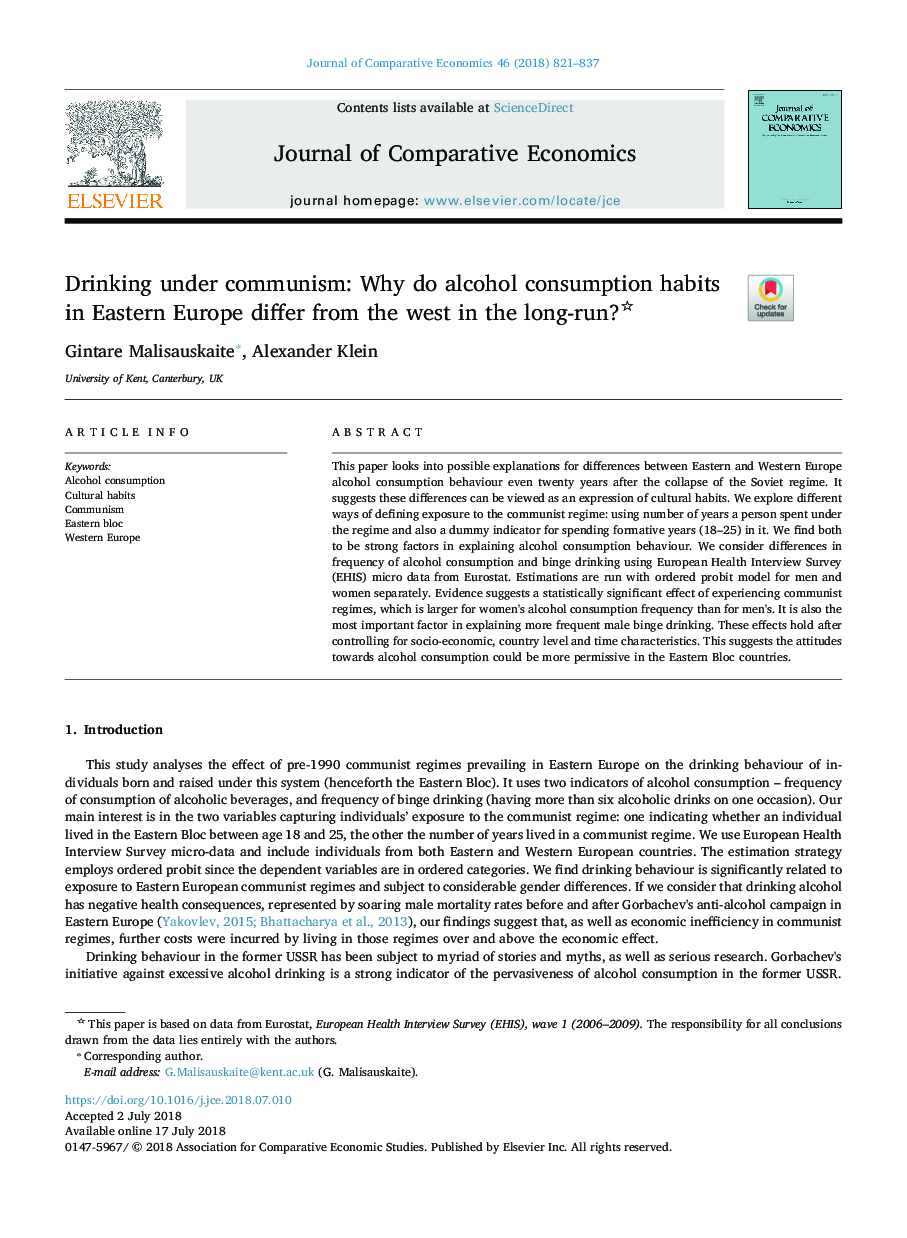| Article ID | Journal | Published Year | Pages | File Type |
|---|---|---|---|---|
| 10153671 | Journal of Comparative Economics | 2018 | 17 Pages |
Abstract
This paper looks into possible explanations for differences between Eastern and Western Europe alcohol consumption behaviour even twenty years after the collapse of the Soviet regime. It suggests these differences can be viewed as an expression of cultural habits. We explore different ways of defining exposure to the communist regime: using number of years a person spent under the regime and also a dummy indicator for spending formative years (18-25) in it. We find both to be strong factors in explaining alcohol consumption behaviour. We consider differences in frequency of alcohol consumption and binge drinking using European Health Interview Survey (EHIS) micro data from Eurostat. Estimations are run with ordered probit model for men and women separately. Evidence suggests a statistically significant effect of experiencing communist regimes, which is larger for women's alcohol consumption frequency than for men's. It is also the most important factor in explaining more frequent male binge drinking. These effects hold after controlling for socio-economic, country level and time characteristics. This suggests the attitudes towards alcohol consumption could be more permissive in the Eastern Bloc countries.
Related Topics
Social Sciences and Humanities
Economics, Econometrics and Finance
Economics and Econometrics
Authors
Gintare Malisauskaite, Alexander Klein,
